prion
Origin: proteinaceous infectious particle
(microbiology) an infectious protein particle similar to a virus but lacking nucleic acid; thought to be the agent responsible for scrapie and other degenerative diseases of the nervous system.
The word, for proteinaceous infectious agent, was coined in 1982 by neurologist stanley Prusiner as part of a hypothesis regarding ailments bearing aetiologic resemblance to those caused by slow viruses (for instance, kuru). The hypothesis has been borne out by investigation. Prions are now believed responsible for several transmissible neurodegenerative diseases such as creutzfeldt-jakob disease (CJD), the human form of mad cow disease.
prions are infectious proteinaceous particles that lack nucleic acid. Prions are said to be in the border zone between nonliving and living things because they have no need to metabolize or the capacity to reproduce but they are capable of replication within the body of a human or of some mammals.
prions can gain entry into the body mainly by ingestion, e.g. of contaminated human Growth Hormone or of contaminated blood or blood products. Prions may also arise from a mutation in the gene that encodes the protein. They not only fold into unusual shapes but also seem to have the ability to cause other (normal) proteins to alter their shape as well.
Since in general the disease would show symptoms only after more than 30 years the prions have already accumulated and attacked nerve cells or brain tissues, leaving spongelike holes. Prion diseases have both infectious and hereditary components. The gene that codes for prions can mutate and be passed on to the next generation. Most of the diseases also can be acquired directly by infection, but unlike other infectious agents, prions provoke no immune response.
Dictionary > Prion
You will also like...
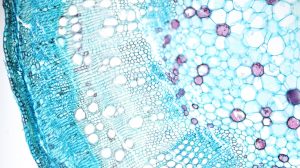
Cell Biology
The cell is defined as the fundamental, functional unit of life. Some organisms are comprised of only one cell whereas o..
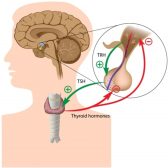
Hormone Production
Hormones are chemical messengers produced by specialized glands and they were produced by switching on the genes designe..
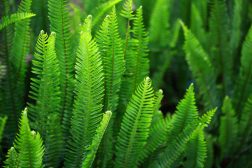
Vascular Plants: Ferns and Relatives
Ferns and their relatives are vascular plants, meaning they have xylem and phloem tissues. Because of the presence of va..
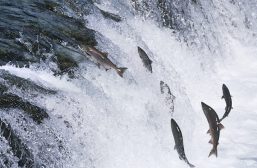
Lotic Communities & Animals
A running water environment offers numerous microhabitats for many types of animals. Similar to plants, animals in lotic..
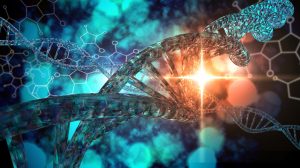
Evolution of Life – Ancient Earth
Autotrophs flourished, absorbing carbon and light. Soon after, primitive life forms that could assimilate oxygen thrived..

Water in Plants
The movement of molecules (specifically, water and solutes) is vital to the understanding of plant processes. This tuto..

